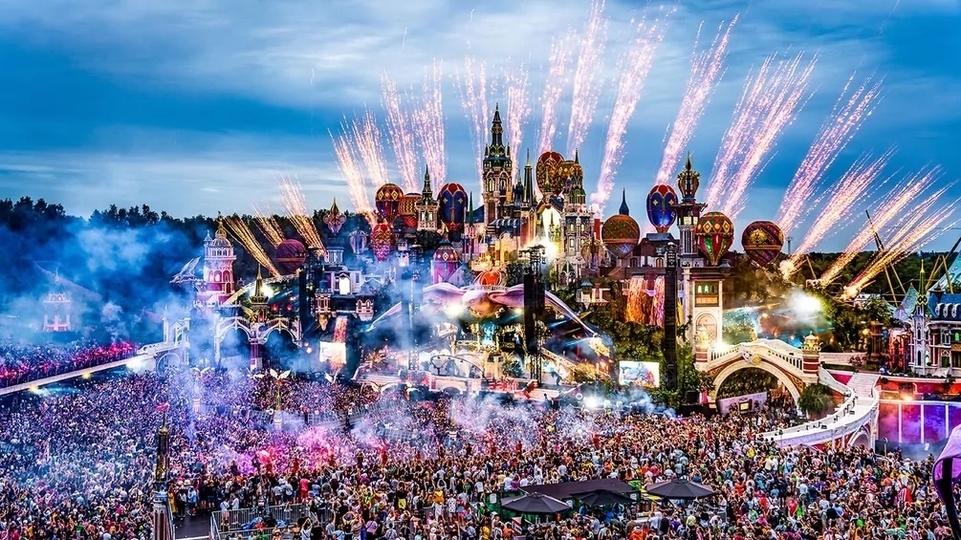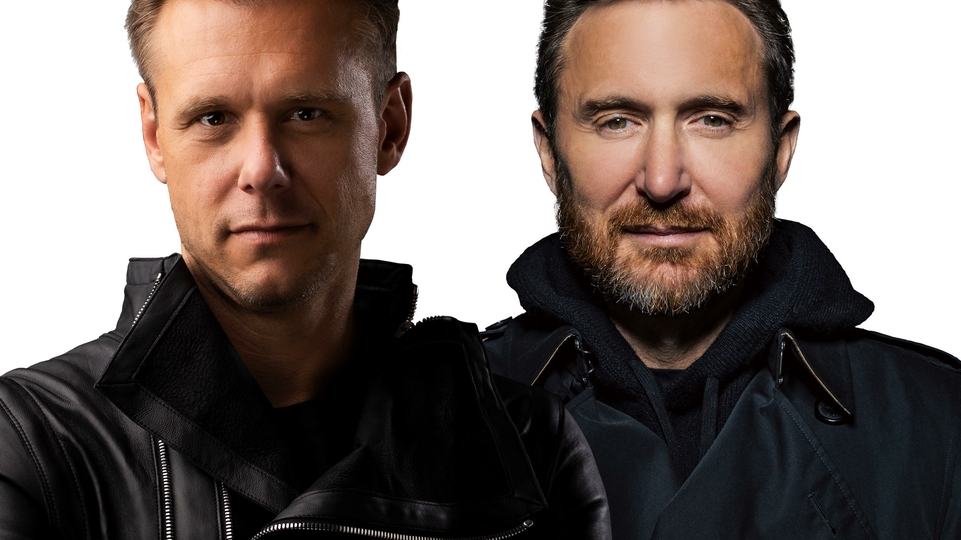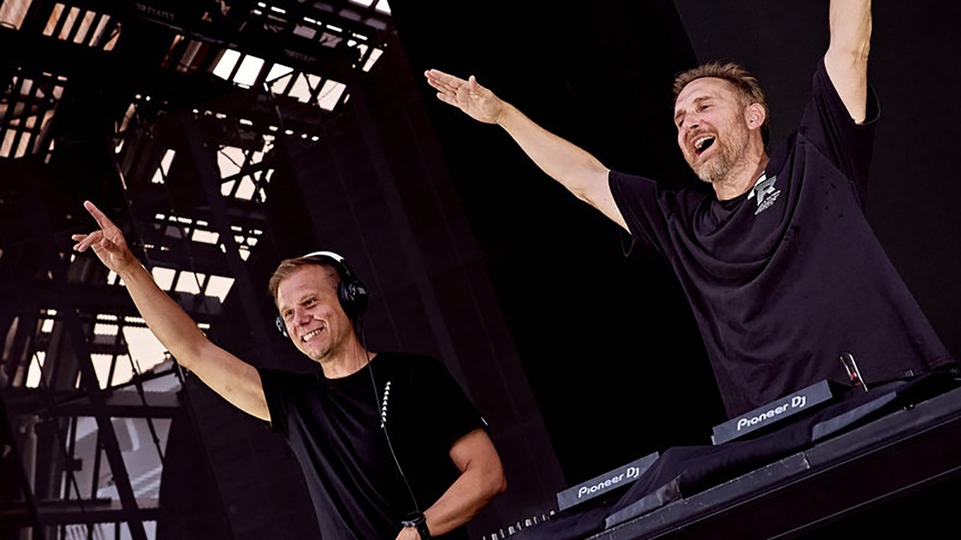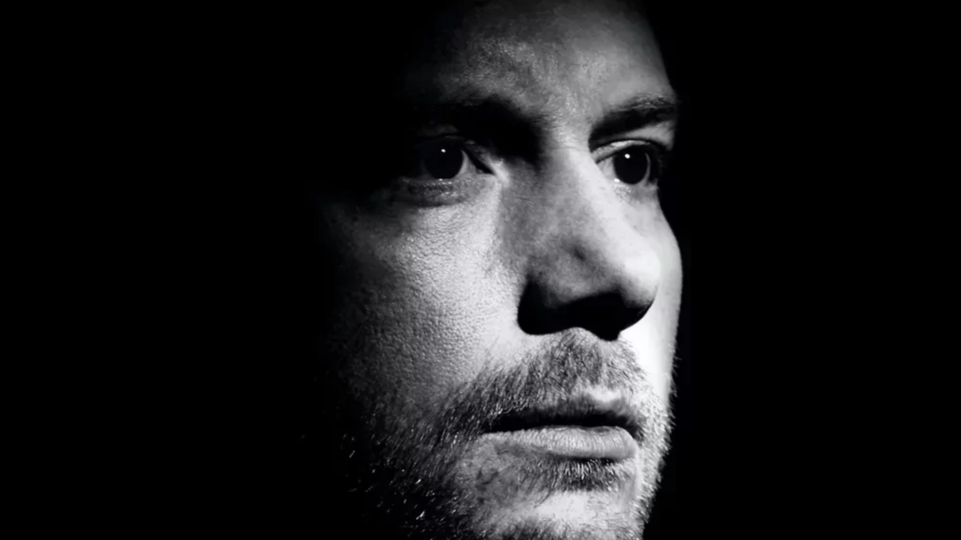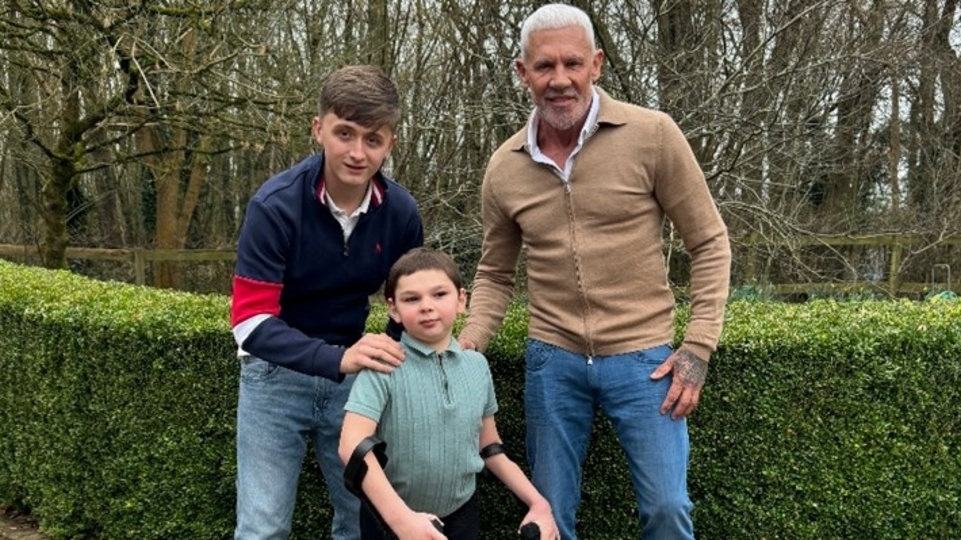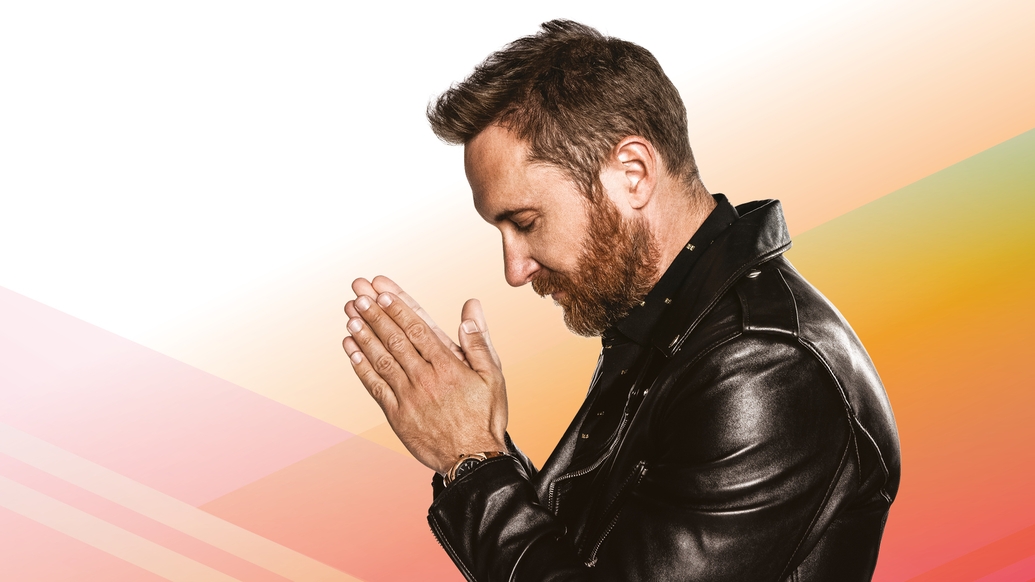
David Guetta returns to the source as Jack Back
With his house-focused project Jack Back, David Guetta has returned to the sound that first got him fired up about dance music. In his DJ Mag North America cover story, the French artist talks about moving on from EDM, creative freedom, and working with the world’s biggest pop stars
On October 19th last year, David Guetta went out onto the main stage at Amsterdam Music Festival (AMF) in the Johan Cruijf f ArenA, where 35,000 people were waiting impatiently in the darkness below him. “I went on stage with my playlists, but I just thought, ‘No, I can’t do this,’” he says down the phone from a ski holiday in Courchevel, France. At that moment, the crowd was unaware that it was about to experience something all new from David Guetta. “I decided to just completely improvise a set.”
And then, the silence was broken. Shiny, trance-like synth stabs rose up and up into the endless darkness above. Guetta climbed up onto the booth to raise his arms; screens flashed manically, and the beat dropped. The delirious crowd erupted, a sea of iPhones was held up, confetti rained down, and pyros and strobes went off. “To all the music lovers, are you ready?” he yelled, with a boyish excitement that had been increasingly lacking up to that point.
What ensued was a far more club-focused mix of sounds than the French pop, dance, and EDM superstar had become known for. Most of the tunes were Guetta originals, edits or collaborations with Danish friend Morten. There was a version of The Chemical Brothers’ ‘Hey Boy, Hey Girl’, tunes from Diynamic Music artists Adriatique and Artbat, an a capella from Marc Romboy and Chicago’s K-Alexi Shelby, and a Tale Of Us remix of Cafe Del Mar’s ‘Energy 52’. Importantly, there was also a wealth of tunes by Jack Back, who at that stage was a background project for Guetta.
The party in the arena that Ajax FC calls home was in full flow. The neatly bearded, well-coiffed and young looking 52-year-old came on the mic during one of the breakdowns. “After many years making hits for the radio, I’ve worked hard recently making club sounds for the DJs, and for you, the party people,” he yelled. “So if it’s OK with you, I’m going to keep playing this. Is that OK?” Thousands of fans cheered in unwavering approval. Suddenly, Jack Back was front and center, and people loved it.


It was actually in 2012 that the first Jack Back tune came on a newly minted label, Jack Back Records. But for six more years, that was it. Then, in 2018, Guetta’s latest album, ‘7’, included a 13-track mix of Jack Back originals that had been sneaking into his sets over the previous 12 months.
“When you get to the levels where we were, it’s a lot of pressure, you know?” says the softly spoken Frenchman, who then pauses to make sure he gets his words right. “You lose a little excitement because it becomes work. When I started, it was all about club music, and then my type of club music switched over to become the new pop. You become a chaser of success because it is so addictive, and then you want more and more success, and I felt like I kind of lost sight of what was turning me on in the first place.”
What Goes Up
But for a good few years before that, Guetta, along with the likes of the late Avicii, Zedd, Skrillex, Afrojack, and many others, very much changed the face of dance music. What’s more, Guetta himself was one of the major players in shaping the pop sound of the last decade. America, in particular, went from being a largely hip-hop, country and rock-loving nation to a place where billions of dollars were being generated by supersized dance events.
The 2007 Alive tour by Guetta’s countrymen Daft Punk might well have laid the foundations of change. After their spectacular pyramid show, with all its flashing lights, lasers, technological advancements, and big electronic sounds, people realized that dance music could work on a major scale. After the iconic French disco robots paved the way, dance acts touring the US were no longer tagged onto the end of a rock line-up, but given their own stage.
To highlight the point, after steady but slow growth, Ultra Music Festival doubled its attendance between 2012 and 2013, with 330,000 people turning up to party in Miami. Robert Sillerman’s company, SFX Entertainment, which owned Beatport and European mega-fest Tomorrowland, was valued at over $1 billion. Eye-popping sums were being paid to Guetta, Afrojack, and Swedish House Mafia for residencies in Las Vegas, where previously only global giants like Celine Dion, Lady Gaga, or Elton John would have been big enough to pull in the colossal number of visitors required to make them pay. More than 30 years after house and techno emerged in the Midwest, then, suddenly electronic music was headline news in the United States.
“There was a moment that came when it was more exciting to make pop, because it was more creative”
The scene quickly expanded. Electronic music became normalised in the US and, as had happened in the ’90s with dance music in the UK (albeit to a much lesser extent), America was primed for its crossover into pop music. Guetta was the man to make it happen, having already dabbled with great success in 2009 with his collaboration with the Black Eyed Peas, ‘I Gotta Feeling’, which was number one in the US for 14 weeks, and a global hit, selling 13 million units.
His 2011 super-hit ‘Titanium’ with Sia then, once again, combined the popular US urban cultures of hip-hop and R&B with a poppy European house sound, perfectly potent hooks, and of course some of those infamous drops. It was another smash hit, and the soundtrack to a million nights out all over the world. As is always the way with any musical movement, EDM’s core elements were mimicked ad infinitum by all and sundry. The famed drop became almost comical in its predictability. Even one of its chief architects knew: in 2016, Guetta made a record called ‘EDM Is Dead.’
“It was a joke, controversial,” he laughs. “But so many people started to do the exact same thing — a festival where you had six hours of the same 128bpm track in F minor with lead EQ at 2000. It was just fucking insane. It was crazy how EDM became more formatted than pop music. There was a moment that came when it was more exciting to make pop, because it was more creative. When I first got into dance music, pop was not creative, so I made dance as a reaction to the system. I could be free and creative, so when our scene became more formatted than the pop scene, I was like, ‘OK, we really have a problem.’ It no longer made me happy. I would rather make pop songs as David Guetta than play bad dance music.”
The so-called “godfather of EDM” wasn’t the first to move to dissociate himself with the genre. Plenty of other foundational EDM figures began to move into new areas: Boys Noize, for instance, had started producing Frank Ocean, and Skrillex was producing FKA twigs. It was the beginning of the end of EDM.


February was supposed to have been a full month off for Guetta to ski. But instead he broke off for a week to go to writing camp with disco pioneer and Chic frontman Nile Rodgers. As we chat, the popular line that, in person, the Frenchman is disarmingly down-to-earth and likeable rings very true. He doesn’t take himself too seriously, is a big fan of sharing self-deprecating memes on the Internet, and is more than honest about following fame and fortune.
The night before we spoke, however, he was up making music on a laptop in his alpine lodge until 6am. No one is expecting anything from him, he just wanted to. “It doesn’t feel like work,” he beams, revealing an impressively enduring love of what he does. “I’m just playing, as I found some new plugins and I’m very happy, because actually...” he stalls to sip a drink and find the words.
“This is like a new phase in my life. For about five years, I was driven crazy. I really felt that people needed something new. When EDM was huge, it was all one same sense of euphoric emotion. The problem was that DJs playing to massive crowds of 50,000 or even 20,000 people, if you want to be cool, you play underground music. But it is club music, not festival music. It doesn’t work, sonically. You don’t kill the crowd like you do with EDM. Maybe some people don’t think it matters if people have their hands in the air — but to me, you want to kill it. You want people to go insane, so you have the choice between EDM, which sounds like five years ago, or playing underground, which doesn’t have the impact.”
What Guetta now believes bridges this gap is the music he is making with Danish friend Morten, and to a lesser extent, Jack Back. It has a large-scale impact for sizeable festival crowds, but is less predictable, more emotionally varied. His impromptu set back at AMF confirmed it.
“It’s influenced by the UK rave scene,” says the father of two teenagers who maintains that he feels the same connection and energy with his crowds now as he did 30 years ago. “It’s more house-y. At first I wondered how it would work with only me pushing this sound, but then Calvin Harris started doing this too with his Love Regenerator project, so now I think that, together, we can shift the needle. I feel we’re back to 2009, when what was played on the radio, in the clubs, and the festivals is all completely different.”
“I don’t need more money, my life now is only about being happy. I’m going to keep making pop music ’cause I love it, but if making more underground music makes me happy, I will carry on doing it”
Return to the Source
Another key moment in the genesis of Jack Black was a trip (on a private jet, of course) with UK acts CamelPhat and Solardo. Their flight was canceled, so they hopped on board with a welcoming Guetta and soon played the superstar what they were working on. “It was basically what I was doing in the ’90s!” he laughs. “I was like, ‘That’s crazy, that’s exactly the type of record I was making and playing in 1992.’ This is totally my culture, I understand this very well. I know how to do this, I’m gonna do it.”
Born in 1967 in Paris, Pierre David Guetta had decided by the age of 14 he wanted to be a DJ. He’d grown up around black music — funk, soul, Marvin Gaye, Stevie Wonder — all the stuff he still goes to now when relaxing at home or eating with his girlfriend. By his late teens, he was playing the Parisian circuit. Chicago house music came into his life through local radio stations, and he was in love with Frankie Knuckles and the music the then- Warehouse resident was playing.
Guetta’s first-ever track (which he is happy to laugh about now) was a hip-hop collaboration with Sidney called ‘Nation Rap’. Four years later, he made a perfectly deep and emotive house tune of his own with none other than legendary Chicago vocalist Robert Owens. True underground DJs still play it today. That was in 1994, and until 2001 there were no more new tunes.
He explains that the UK and French scenes were very different back then. While DJs were becoming superstars in the UK, that wasn’t the case in France, where it was “hard to survive as a DJ. I was cool and respected, but I felt I was stuck. People wouldn’t let me play what I wanted to play.”
Ever the pragmatist, Guetta decided to become a promoter so “I could book myself and play house!” He became so successful as a club promoter that he, along with then wife Cathy, ran nightclubs including Le Palace and Les Bains Douches. It is rumored that promoters Mike and Claire from Ibiza club Manumission were once booked by Guetta to play in Paris in the early ’90s and, at the gig, for the first time, they had sex, live and on stage. That went on to become a regular and infamous feature at their Ibiza club for many years afterwards.


Guetta’s father was a Franco-Italian sociologist and, along with his mother, was left leaning. At first they didn’t approve of their son’s career choices. They preferred it when he was walking barefoot in the streets of Paris as an eight-year-old. DJ and club culture was seen as “terrible and fake.” David himself realised promoting and running clubs was taking up too much time, and that he was being removed from his love of making and playing music, hence the six-year production hiatus. “I was successful, but not happy.”
In 2001, he decided to go back in the studio, once a week, on a Monday. “On the first Monday, I made ‘Just A Little More Love’, in only 30 minutes,” he says, matter of factly. After he made the beat, he went to a restaurant for lunch and met a guy, Chris Willis, who said he was a gospel singer. “We met up the next Monday and finished the song, then I played it at the club.” It just so happened that Thomas Bangalter from the already celebrated Daft Punk was there, and he was impressed. “He was like, ‘Wow, this is really good, David,’” Guetta recalls, “and he called Virgin there and then.”
It was the best label at the time for French touch, and because “it was like God was calling them when Thomas rang,” they signed him immediately. It’s fair to say that track got Guetta’s production career off to an unbelievable start, given that it went on to chart around the world, sell more than 300,000 copies worldwide, and announced his arrival as a producer extraordinaire.
At the time, everyone was doing French touch, “even the British!” jokes David. He wanted to do something different, “a combination of electro-house that was the underground sound at the time, with some melodies from the ’80s.” It worked, he didn’t sound like everybody else, and so his music took off around the world. More importantly, once his parents saw his success, his mother was happy to say she was finally proud of her son.
Since then, he has shifted over 9 million albums and 30 million singles worldwide. He’s been voted No. 1 DJ in our poll, had ‘When Love Takes Over’ crowned as the number one dance-pop collaboration of all time by Billboard, won a Grammy, and been nominated for three more. He’s also traveled the globe many times over and played to many millions of fans, had two children, and has an estimated annual income of $37 million.


He’s been on Saturday Night Live and was music ambassador for UEFA Euro 2016 in France, while his track ‘This One’s For You’ was the official song for the tournament, and was played before and after every game. He also played live at the Opening ceremony and Closing ceremony, as well as during a free concert at the Champ de Mars under the Eiffel Tower. Unquestionably, then, he is France’s — and dance music’s — biggest musical export. Having achieved so much, it’s hard to imagine what keeps him motivated.
“I don’t need more money,” he says. “My life now is only about being happy. I’m going to keep making pop music ’cause I love it, but if making more underground music makes me happy, I will carry on doing it. Not money. Not a career. I’m not trying to do anything but be happy. It’s different now, because when you build a career, you make strategic moves. I’ve worked in the studio with some underground acts but we don’t speak about it because it could be a strategic issue for them. But that’s because of the fans, as in reality we are all just music lovers and we appreciate each other. I just want to do things that are fun and interesting for me, things that challenge me.”
He says, rightly, that a challenge for someone of his stature, with as much investment from major labels as he has, was taking a step back and creating a new brand like Jack Back, and dialing back the scale of the shows he wants to play in order for them to make sense. “In one year since it existed, I received tons of offers for bookings, and the records are being played by a lot of DJs, which is amazing. To some people it can look less of a challenge to do this than being Billboard No. 1, but every challenge is a challenge of its own.”
To that end, the ongoing difficulty will be to keep Jack Back what it is: a more stripped-down sound that is suited to more personal crowds rather than stages for tens of thousands of baying party people. He says he has a wealth of new music to get out there, but hasn’t quite decided how yet. He also points out there is a difference between Jack Back and David Guetta: David Guetta loves to play Jack Back’s music, but Jack Back doesn’t play David Guetta’s music. “I guess Jack Back is more snobbish than David Guetta,” he laughs.
Got to be Real
Where previous projects’ success has been measured by award nominations, streaming figures, number of units sold, Jack Back is “nothing to do with that. I’m just trying to have fun, so I cannot fail. It’s difficult to say I’ll refuse a huge fee to play as David Guetta to go and play for 100 times less as Jack Back, because I do love playing those huge melodic records, getting the energy from them. They are more where I put my emotions from my divorce, from falling in love, from life. But I will also try and do a few smaller shows.”
This freedom is what he previously had when working in major label studios with the sort of sizable stars that even your granny is familiar with — Justin Bieber, Britney Spears, Snoop Dogg, you name it, he’s done it. The first time this happened, he went to a writing camp in the United States. It was for Rihanna, and was a new way of working that was unfamiliar to him. “I asked the manager, “So what do you want me to do?’ and he said, ‘No, you tell me what we want, that’s why you’re here,’ I was like ‘Oh, ok!’” While he remembers it was “absolutely” daunting at the time, and that it took a while to have the confidence to work like that, he says it was actually easier than he thought.
“Dance music was massive then. All the pop artists wanted a piece of it, but didn’t understand the culture. They just did whatever I said. They trusted me. I’d had No. 1 after No. 1 after No. 1, but then it got harder. Dance music is not the top-streamed music in the world right now. That’s Latin music. So things have changed.”
Something else, even more important, has changed. David is taking more time off to spend with his two children. “I’m doing more and more of this, because my entire life was only music, and now I’m trying to learn how to do something else and appreciate life, which is challenging. I’m also trying to be a better father than I was in the first years, so all of this is great.”
With that, our time is up. David Guetta is off, not to play to thousands of manic youths, make pop hits or become Jack Back, but to be a father. It’s his son’s 16th birthday, and five of his best friends have come out to the mountains. “No nanny, no mums, it’s just me taking care of everybody, just a bunch of teenagers at home, and we’re just having so much fun.”

